Bonegrinder (27 page)
Authors: John Lutz

“Or maybe it weren’t a bear,” Bonifield said.
“Bear or not,” Luke Higgins said, “it was somethin’ an’ it’s most certain dead. Them that wants can believe it was a bear. Thing is, far as we’re concerned, it best have been a bear.”
“It best have been,” Frank Turper put in, amidst other murmured agreement.
Old Bonifield lapsed silent.
Mully set up another cold beer for Wintone, but the sheriff shook his head and slid off his bar stool. He’d spent a long day full of questions, congratulations and nosy reporters, and he was tired and wanted to go to bed. Wintone hadn’t told anyone he didn’t feel good about what he’d done, not like he’d expected. He felt a loss.
“So it was only somethin’ wounded an’ tryin’ to survive,” Mully said, slowly gliding a rag over the bar where Wintone had been drinking.
Wintone pulled the weight of his sweat-soaked shirt away from his body as he started toward the door. “Ain’t we all now?”
“Speak fer yourself, Sheriff,” old Bonifield said, swigging hard at his beer.
Wintone stepped out into the hot night and hesitated, wondering if he should go home to sleep or bed down in the back room at the office. Not that it made a difference.
Had it been a bear he shot? Already the memory of that night had become less vivid, touched by time, taking on new images and new meanings in the darkness at the base of his mind. He remembered what Higgins had said: “Them that wants can believe it was a bear.” But would they ever really, completely, believe?
It had to have been a bear, Wintone told himself, but he knew there wasn’t much that had to be. He’d never be sure, not really sure. There was so much he’d never be sure about.
Wintone stood for a time in the heat not knowing why, beneath Mully’s buzzing electric sign and the circling night moths zigzagging their way to frantic, silent death. Then he turned and walked toward his office.
John Lutz is one of the foremost voices in contemporary hard-boiled fiction.
First published in
Alfred Hitchcock’s Mystery Magazine
in 1966, Lutz has written dozens of novels and over 250 short stories in the last four decades. His earliest success came with the Alo Nudger series, set in his hometown of St. Louis. A meek private detective, Nudger swills antacid instead of whiskey, and his greatest nemesis is his run-down Volkswagen. In his offices, permeated by the smell of the downstairs donut shop, he spends his time clipping coupons and studying baseball trivia. Though not a tough guy, he gets results. Lutz continued the series through eleven novels and over a dozen short stories, one of which—“Ride the Lightning”—won an Edgar Award for best story in 1986.
Lutz’s next big success also came in 1986, when he published
Tropical Heat
, the first Fred Carver mystery. The ensuing series took Lutz into darker territory, as he invented an Orlando cop forced to retire by a bullet that permanently disabled his left knee. Hobbled by injury and cynicism, he begins a career as a private detective, following low-lifes and beautiful women all over sunny, deadly Florida. In ten years Lutz wrote ten Carver novels, among them
Scorcher
(1987),
Bloodfire
(1991), and
Lightning
(1996), and as a whole they form a gut-wrenching depiction of the underbelly of the Sunshine State. Meanwhile, he also wrote
Dancing with the Dead
(1992), in which a serial killer targets ballroom dancers.
In 1992 his novel
SWF Seeks Same
was adapted for the screen as
Single White Female
, starring Bridget Fonda and Jennifer Jason Leigh. His novel
The Ex
was made into an HBO film for which Lutz co-wrote the screenplay. In 2001 his book
The Night Caller
inaugurated a new series of novels about ex-NYPD cops who hunt serial killers on the streets of New York City, and with
Darker Than Night
(2004) he introduced Frank Quinn, whose own series has yielded five books, the most recent being
Mister X
(2010).
Lutz is a former president of the Mystery Writers of America, and his many awards include Shamus Awards for
Kiss
and “Ride the Lightning,” and lifetime achievement awards from the Short Mystery Fiction Society and the Private Eye Writers of America. He lives in St. Louis.
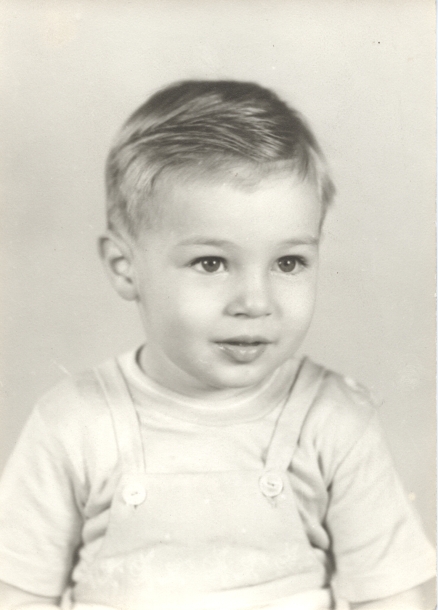
A two-year old Lutz, photographed in 1941. The photograph was taken by Lutz’s father, Jack Lutz, who was a local photographer out of downtown St. Louis.
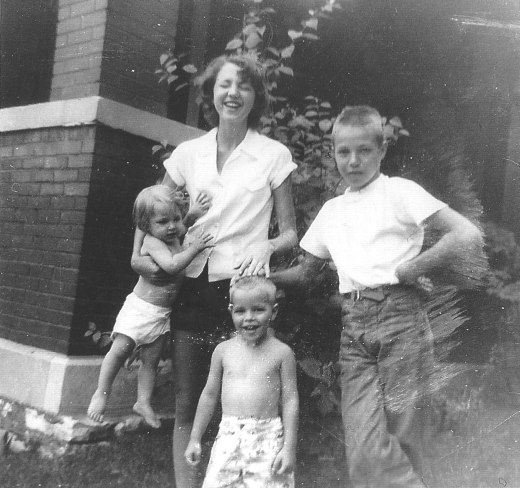
A young Lutz with his little brother, Jim, and sisters, Jacqui and Janie.
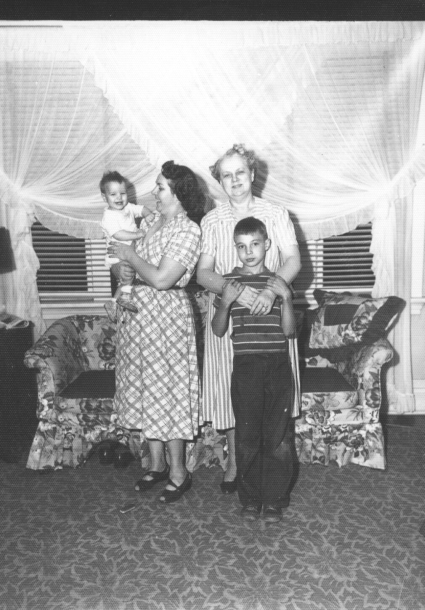
Lutz at ten years old, with his mother, Jane, grandmother, Kate, and brother, Jim. Lutz grew up in a sturdy brick city house that sat at an incline, halfway down a hill; according to Lutz, this made for optimal sledding during Missouri’s cold winters.
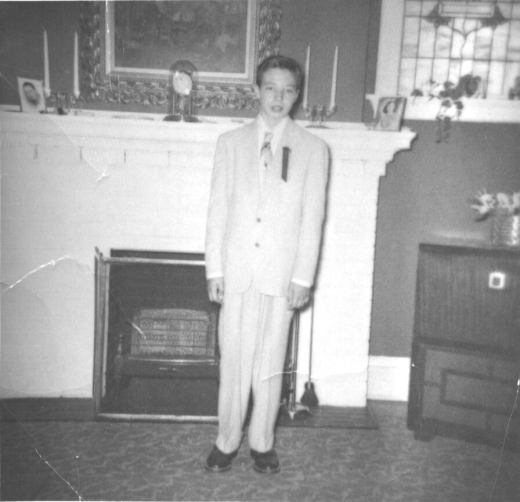
Lutz in his very first suit, purchased for his grade school graduation.
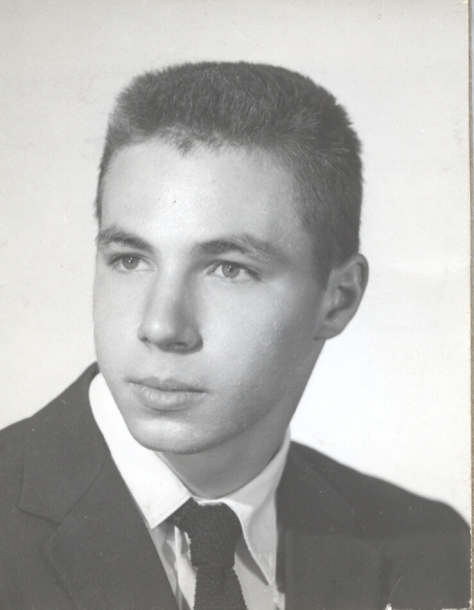
Lutz’s graduation photo from Southwest High School.
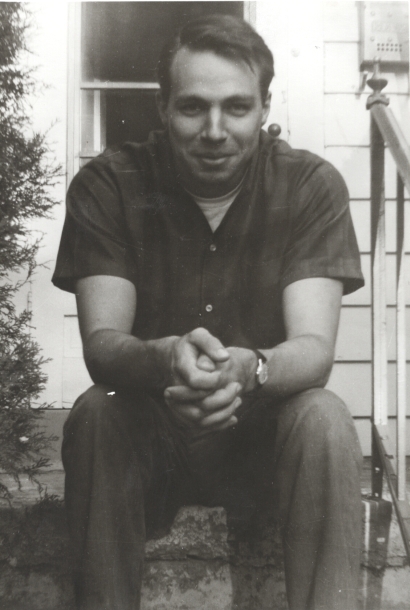
Lutz sitting on the front porch of the first house he and his wife, Barbara, ever owned. According to Lutz, the square footage rendered the house smaller than his last apartment; nevertheless it was an important milestone and tremendous relief—there was no one upstairs to abuse their stereos or bang on the floor (or to complain when they did the same).
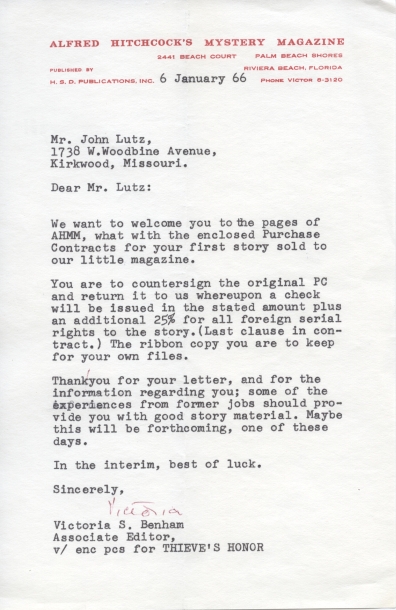
On January 6, 1966, Lutz officially became a “professional writer” with his first story sale to
Alfred Hitchcock’s Mystery Magazine
. After the publication of his first story, Lutz quickly became a regular contributor to the magazine. Lutz has said that he enjoys writing, “as much as when I began. It’s a process that lives and grows.”
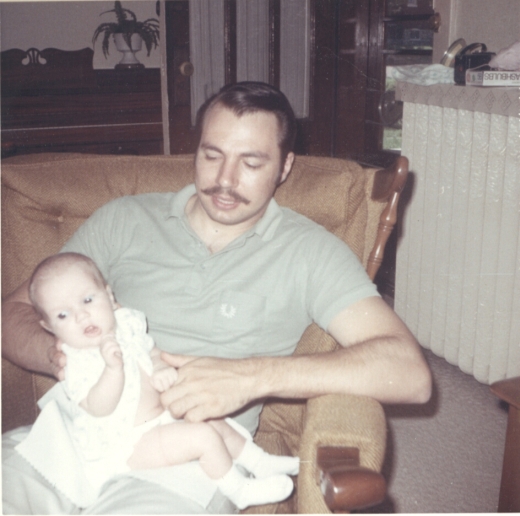
Lutz in St. Louis with his daughter Wendy.
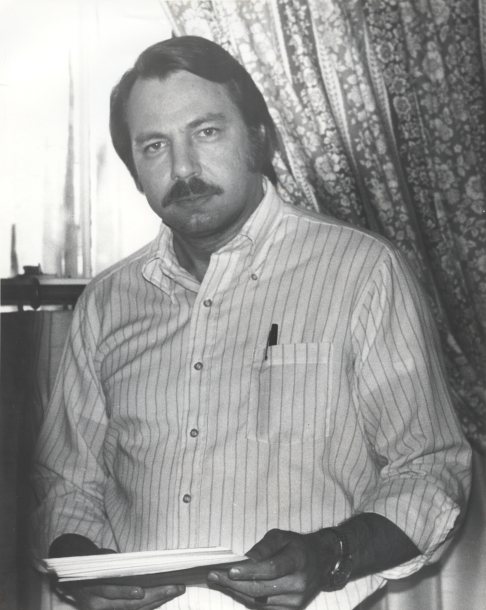
Lutz in his home office in the early eighties. When asked about his discipline and writing practice, Lutz has said that “being a writer is like being a cop; you’re always on, even off duty.” In the late sixties and early seventies, he published four books and many celebrated short stories.
